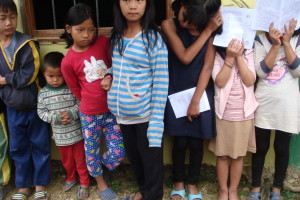manifesto for new politics: educati

When Jay Prakash Narayan gave call for total revolution (Sampoorna kranti), in 1974, he meant well. But he faltered in not insisting on developing indicators and tools for mid course correction. i hope we dont repeat that experience. After all, in real politics, no visionary can ever anticipate all contingencies that might arise and thus warrant a quick response. Muddling through the mess of contradictory popular aspirations without compromising with basic ideals is possible and I think is the need of the hour. Every political party has to recognise that foundation of good governance can be laid only by having a balance between creation of private, common and public goods in society. The cost of creating these goods has to be recovered by prudent fiscal responsibility regime. I have always believed that if we have strong institutions, even weak policies get corrected during implementation but not the other way round. Institution building is the need of the hour.
Promising freebies is easier and sometimes is warranted depending upon the target group and nature of good. But a poor person would appreciate if she can be assured drinkable quality water with graduated pricing so that a minimum quantity can be free and after that prices may escalate as consumption level increases. Similarly, minimum quantity of good quality power (without fluctuations) can be at low base price depending upon the number of rooms in a house and then scale can rise. I will share in coming weeks, my wish list of issues to be debated in the coming parliamentary elections.
Education:
Despite reports of various committees, neighborhood school concept could never become a reality. When teachers and other public servants in education and other departments don’t teach their children in municipality or government rural schools, a trade-off has been made. A message has been given that state does not consider the right to education for poor children to be at par with the privileges of the children of the rich.
There are several key principles that should guide search for viable solutions in future: a) will investment in education at basic level becomes fundamental driver of future politics? Instead of using teachers for political purposes, will we develop their capabilities for providing highest quality of education in every public school ( such as in Navodaya vidyalaya)? Will creation of open source free multi-media, multi language high quality content for school children become a fulcrum of national policy?
Will providing (i) laboratories, (ii) libraries, (iii)play ground, (iv) health check up facilities and (v) nutritious meals in every school in a time bound manner become non negotiable plank of every manifesto? Let every party announcing cheap food for non-poor, or free electricity or water for non-poor may now make their intentions clear. The implicit trade off against the interest of the poor should become easy to discern and debate.
The Ministry of MHRD may have resources for thousand other things but will not have resources, for documentation, dissemination of, and experimentation on innovations by school teachers. There is no social innovation or risk or venture fund at state and central level to invest in the ideas dealing with making education more joyful, creative and inclusive. Parties must make their plan for promoting inclusive innovations clear. Unless we invest in individual and institutional innovations at grassroots, the whole project is doomed.
The appointment of vice chancellors to majority of large universities at state level has been thoroughly politicized and merit is seldom a consideration. Parties must make their stand clear whether they wish Indian institutions to remain mediocre and thus compromise with the aspirations of young people or intend to bring about a change. There is great rush for privatization of higher education as well despite the fact that top five to ten institutions in any field are funded publicly. May be there is a need to review the entire education sector and give it a proper critical scrutiny to redefine how does India want to educate youth but also provide lifelong education. When K M Munshi suggested setting up Land Army units in different educational institutions to help young unemployed youth learn to serve society in a disciplined manner, he was ahead of his time. May be the time has come to close down NSS and develop a new social, ecological and cultural connect between youth and society as a part of educational system. The entire emphasis on education is to often shortchange the students in tier two and three institutions /towns with short term strategies. May be the voters in these towns and neighboring villages must decide whether they wish the current hegemony of metropolitan and mediocrity bias in education to continue.
